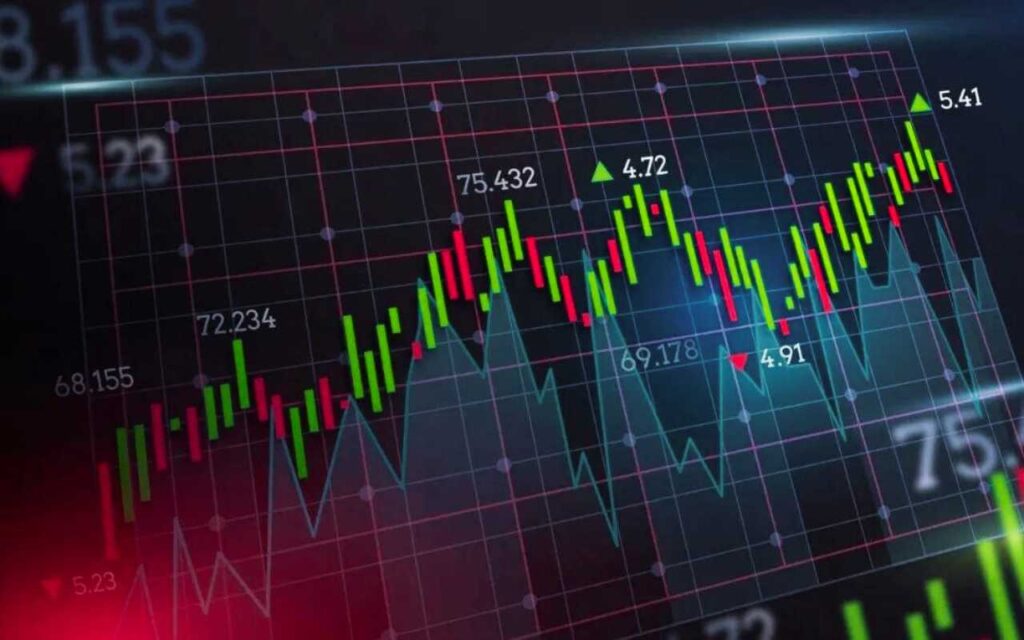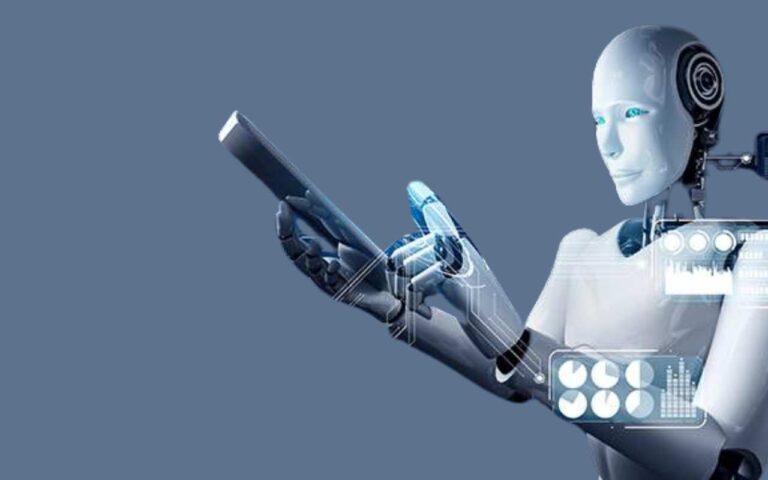Can AI Beat: Artificial Intelligence (AI) has become one of the most transformative technologies in the 21st century, finding its way into various industries, from healthcare to finance. One area where AI is being closely observed for its potential is stock market trading, including futures and options trading. The key question that arises is: Can AI beat the stock market? In this article, we will explore the current role of AI in stock and options trading, the challenges it faces, and its potential to outperform human traders in the future. (Can AI Beat the Stock Market)
How AI is Being Used in Stock Market and Options Trading
- Algorithmic Trading: AI has been a cornerstone in the rise of algorithmic trading, where trading systems execute orders automatically based on pre-programmed strategies. The strategies can be as simple as moving averages or as complex as using neural networks to forecast price movements. These AI algorithms can place trades much faster than humans and even adapt to changing market conditions. (Can AI Beat the Stock Market)
- Sentiment Analysis: Another important use of AI in trading is sentiment analysis. By analyzing social media platforms, news outlets, and financial blogs, AI can gauge market sentiment toward a particular stock or sector. For instance, AI can monitor Twitter for mentions of a company and determine whether the general sentiment is positive or negative. By doing this, AI can anticipate sudden shifts in stock prices based on public sentiment, a task that would be nearly impossible for human traders to do at scale. (Can AI Beat the Stock Market)
- Pattern Recognition: AI excels in pattern recognition. Whether it’s analyzing historical stock data, detecting technical indicators, or identifying irregular market patterns, AI can find relationships that are invisible to human eyes. These patterns can give AI-driven trading models a significant edge in predicting price movements in stocks, options, or futures. (Can AI Beat the Stock Market)
- Risk Management: Managing risk is a crucial part of any trading strategy. AI can dynamically assess the risk of any trade in real-time by analyzing volatility, liquidity, and correlation between assets. AI-powered systems can automatically adjust trading strategies based on the risk profile of a portfolio, ensuring that traders don’t expose themselves to unnecessary risks.
- Options Pricing and Volatility Forecasting: In options trading, pricing models such as Black-Scholes are traditionally used. AI models can enhance these calculations by integrating more dynamic market data to predict implied volatility more accurately. By understanding volatility better, AI can offer better pricing models for options contracts, reducing risk and increasing potential profits for traders.
- Backtesting and Optimization: AI can simulate trading strategies over historical data (backtesting) and optimize them for better future performance. Through reinforcement learning, AI can learn which strategies work best under certain market conditions and continuously improve its approach to trading.
Can AI Beat the Stock Market Truly?
While AI shows significant promise in revolutionizing the stock market and futures trading, it’s not a silver bullet. The stock market is influenced by many unpredictable factors, such as geopolitical tensions, natural disasters, regulatory changes, and unexpected economic downturns. These events are often termed “Black Swan” events, and they can disrupt even the most sophisticated AI models.

Advantages of AI in Trading:
- Speed and Efficiency: AI systems can process vast amounts of information in real time and execute trades within milliseconds. This level of speed and efficiency is impossible for human traders to match. High-frequency trading (HFT) is a prime example of how AI excels in executing large numbers of trades in a fraction of a second.
- Emotion-Free Trading: Human traders often make decisions based on emotions, such as fear or greed. AI eliminates emotional biases, sticking strictly to data-driven strategies and models. This helps prevent irrational decisions that can lead to losses.
- 24/7 Trading: Unlike human traders, AI systems can operate continuously without fatigue. This is particularly useful in global markets where trading occurs around the clock.
- Adaptability: AI can adapt to new data and changing market conditions faster than humans. Machine learning models can constantly update themselves, learning from both successes and failures to improve their performance.
Challenges and Limitations of AI in Trading:
- Data Quality and Availability: AI models rely heavily on data to make predictions. Inaccurate or incomplete data can lead to faulty predictions and poor trading outcomes. Ensuring the quality of data used by AI systems is a major challenge.
- Market Unpredictability: As mentioned earlier, the stock market is influenced by many unpredictable factors. AI models, no matter how sophisticated, can still fail to predict sudden market crashes or Black Swan events. These unforeseen events can lead to significant losses, especially for AI models that rely heavily on historical data.
- Overfitting: AI models can sometimes overfit the data, meaning they perform well on historical data but fail to generalize to new, unseen data. This is a common pitfall in machine learning and can result in models that perform poorly in live trading.
- Regulatory Concerns: The increasing use of AI in trading has raised regulatory concerns. Market regulators may impose restrictions on certain types of algorithmic trading, particularly high-frequency trading (HFT), due to concerns about market stability and fairness.
- Competition: AI in trading is not a secret. Hedge funds, investment banks, and other institutional investors are already leveraging AI to gain an edge in the market. As more players adopt AI technology, the competitive advantage that AI offers may diminish over time. (Can AI Beat the Stock Market)
Discover Automated Trading Systems: Boost Profits
AI and the Future of Options Trading
In the world of options trading, AI holds immense potential to transform how contracts are priced, traded, and managed. As options are derivatives, their value depends on the price of the underlying asset, and they tend to be more complex to trade than stocks. Here’s how AI could shape the future of options trading:
- Improved Pricing Models: AI can improve traditional options pricing models by incorporating more variables and learning from real-time market data. This would allow traders to identify mispriced options contracts and capitalize on arbitrage opportunities.
- Volatility Predictions: Volatility is a key factor in options pricing. AI can predict future volatility more accurately by analyzing historical patterns and real-time data. Better volatility predictions mean better pricing strategies and higher potential profits for options traders.
- Strategy Optimization: AI can help options traders develop and optimize strategies by analyzing market conditions and historical performance. AI could generate complex strategies such as straddles, strangles, or butterfly spreads that are designed to perform well under specific market conditions.
- Automated Trading: AI can automate options trading by executing trades based on pre-determined strategies or real-time data analysis. This would allow traders to take advantage of short-term opportunities and reduce the risk of human error.
- Risk Management: AI can dynamically adjust options positions based on changing market conditions, automatically hedging against losses or capitalizing on favorable price movements.
Conclusion
AI has the potential to revolutionize stock and options trading by offering faster, more efficient, and data-driven trading strategies. However, AI is not without its limitations. While it can process vast amounts of data and identify patterns that human traders might miss, it is still vulnerable to the unpredictable nature of the stock market. (Can AI Beat the Stock Market)







2 Comments